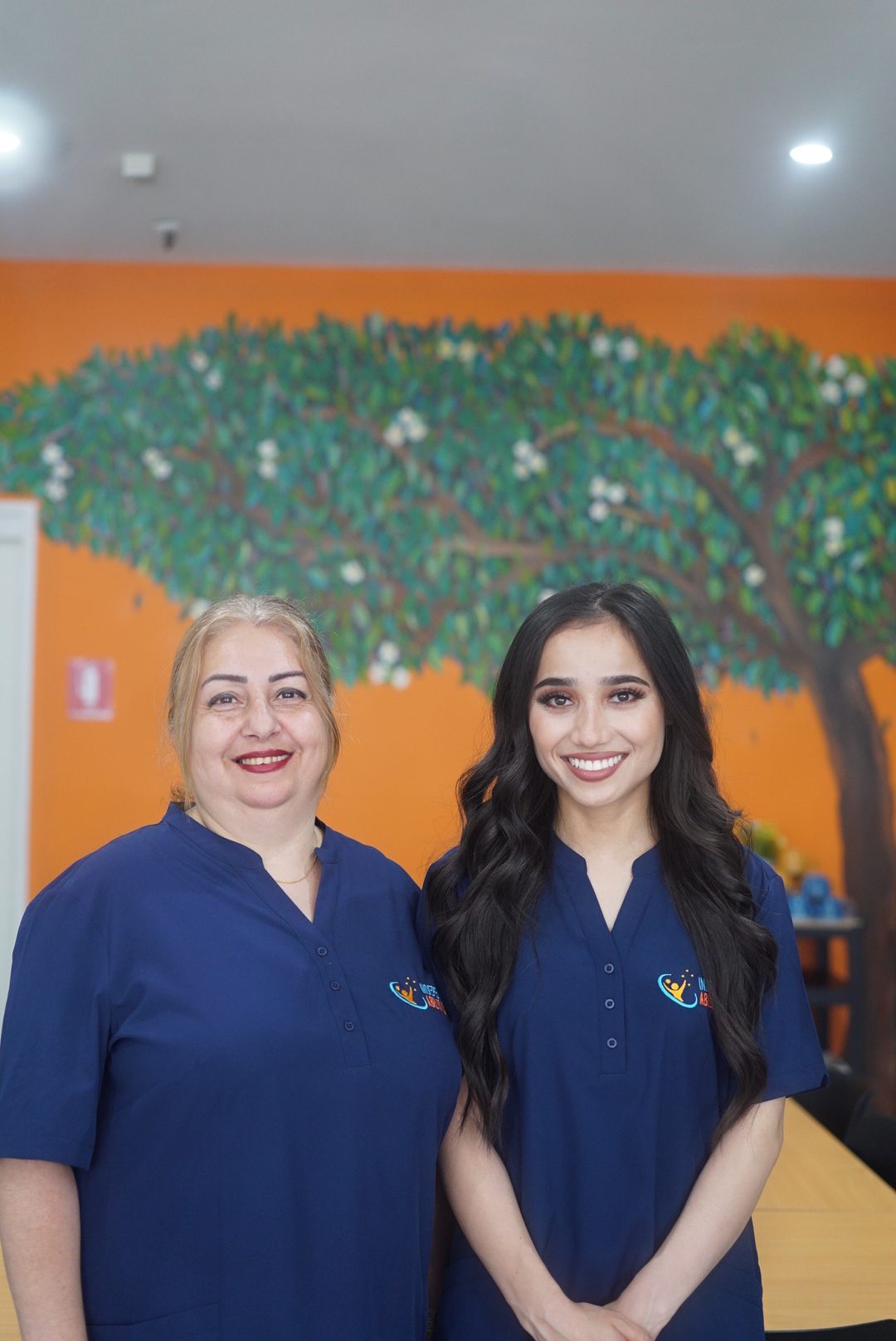NDIS Support for Physical Disabilities
Respectful, consistent and practical support to help you live more independently.
Supporting You at Home
We Support Participants with Physical Disabilities
- Cerebral palsy
- Spinal cord injuries
- Muscular dystrophy
- Stroke-related mobility limitations
- Multiple sclerosis
- Acquired or traumatic brain injuries
- Chronic pain or mobility challenges
- Orthopaedic or post-operative needs
- Neurological and degenerative conditions
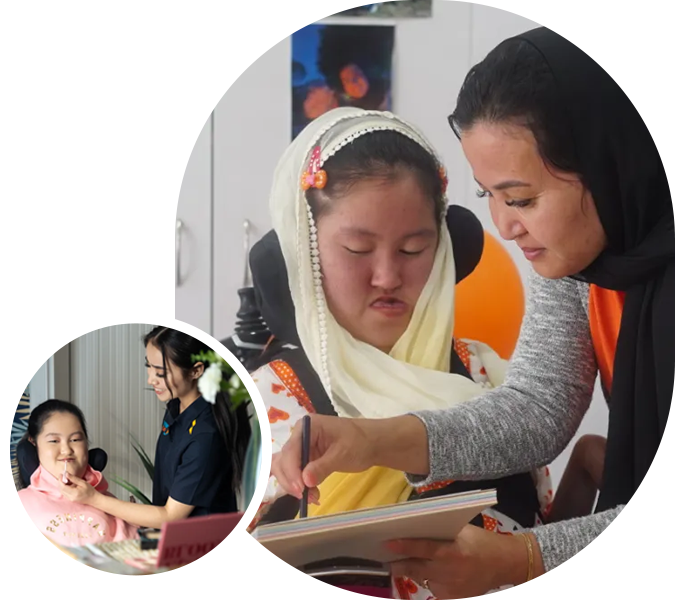
How we support people with physical disabilities
Every person has different strengths, routines and mobility needs. We tailor supports to your daily life so you can stay safe, connected and confident.
Personal care and daily routines
Our qualified support workers can assist with:
- Showering, dressing and grooming
- Supported transfers and mobility
- Using hoists and other equipment
- Meal preparation and safe eating
- Continence care
- Morning and evening routines
- Keeping your home clean and comfortable
We work at your pace and focus on building your independence wherever possible.
Community access and social participation
We help you stay connected to the activities that matter to you, such as:
- Attending health appointments or therapy
- Social outings and hobbies
- Shopping and banking
- Community groups, cultural events or local programs
Where possible, we match you with a worker who understands your language, culture and communication style.
High care and complex support
For participants with more complex needs, we can provide experienced staff and nursing support for:
- PEG feeding
- Tracheostomy care
- Ventilation support
- Medication management
- Wound and pressure care
- Post-hospital rehabilitation
Safety, dignity and clear communication are central to how we deliver higher-level supports.
Hospital discharge support
Leaving hospital can be stressful. We work closely with you, your family and your treating team to support a safe transition home. This includes:
- Discharge planning
- Help on the day you return home
- Wound, medication and follow-up support
- Temporary increased care
- Home set-up and equipment support
Families often tell us this service makes a major difference to recovery and peace of mind.
Home maintenance and safety
A safe, accessible home supports daily independence. We can assist with:
- Basic repairs
- Garden maintenance
- Rubbish removal
- Minor accessibility improvements
This reduces physical strain and helps you stay comfortable in your own home. Read More
Our Approach
We know that many participants have had difficult experiences with other NDIS providers. Our approach is built on listening, stability and genuine care.
Consistent workers
We prioritise continuity. You will meet workers who stay with you long term and understand your routines.
Culturally aware and bilingual support
Our team supports participants from diverse cultural backgrounds, including those who speak: Dari, Hazaragi, Hindi, Urdu, Tagalog and Farsi.
This helps reduce communication barriers and ensures you feel understood and respected.
Clear, transparent processes
No establishment fees. No unnecessary charges. No confusing schedules. We take the time to explain your supports clearly and respectfully.
Safety and quality
All staff meet strict NDIS requirements, including:
- NDIS Worker Screening
- Police Check and WWCC
- First Aid and CPR
- Infection control and manual handling
- NDIS Code of Conduct training
- Incident management and reporting procedures
Your safety and wellbeing are always our priority.
Focused on outcomes
We use Supportmate to document your progress, adjust routines as needed and share updates (with your consent). Support is never “set and forget”.
Our Physical Disabilities Support Workers
You’ll be supported by a skilled, well-trained team with strong knowledge of disability and the NDIS.
Support workers
Our workers hold recognised qualifications such as:
- Certificate III in Individual Support
- Certificate IV in Disability
- Certificate III/IV in Community Services
- Manual handling, medication assistance and infection control
- Positive Behaviour Support principles
- NDIS Worker Orientation Module
Nurses (Registered and Enrolled)
Nursing staff support participants with higher clinical needs, including:
- PEG, tracheostomy and ventilation support
- Wound care
- Continence support
- Medication management
Support Coordinators
Our Support Coordinators have backgrounds in:
- Community services
- Disability
- Case management
- Social work, psychology or human services
They understand the NDIS system, advocate for your needs and help you navigate the services available to you. Read Less

Making Tasks Easier to Manage

Develop new skills and learn to be.
independent as you engage in your
day to day activity.

Trust that you will receive holistic care
as we care for your physical and
mental wellbeing.

Get assistance with daily life NDIS access
to multiple services so that you can spend
more of your time doing what you love.

You are always in safe hands with our standardised protocols & professionally
trained staff.
Working with families and carers
Physical disabilities affect the whole support network. We work alongside families by:
- Communicating clearly
- Respecting routines and cultural expectations
- Providing updates when appropriate
- Reducing pressure on carers
- Working collaboratively with therapists and healthcare providers
Our goal is to make everyday life easier, not more complicated.

What Happens When You Contact Us
We keep the process simple and comfortable:
- Initial conversation: We take the time to understand your needs, culture, language, supports and preferences.
- Meeting or home visit: You meet someone who will get to know you properly and help plan your supports.
- Worker matching: We match you with staff who suit your personality, routines and goals.
- Supports begin: Start with a schedule that feels right for you, with consistent staff and clear communication.
- Ongoing support: We adjust as your needs change and stay in regular contact.
If you’d like to discuss NDIS support for physical disabilities, we’re here to help. We’ll take the time to understand what you need, no pressure and no rushed decisions.
Our Promise to You

Choice and Control
“Your Choice of Care.” At IAC, you manage all your supports. We are flexible in providing care quality and understand the importance of your selection and management of support delivery.

Participant Focus
“Focus on what the participant wants, and we deliver” We understand participant’s focus and our job is to focus on what the participant wants and support them with the best possible outcome.

Growth
“Accept the pace of your journey.” Everyone has their own journey and their own way of reaching their goals, we are here to go through this journey with you and support your growth.

Diversity
‘‘We are all the same.’’ At IAC, we have enthusiastic staff from different cultures who are proud of what they do. We have created an inclusive environment that promotes equality for all stakeholders and staff.
Our participants and their families testimonials

Hear directly from one of our incredible participants as they share their journey, challenges, and the positive impact that Independent Ability Care has made in their life.
At IAC, we believe every person deserves the opportunity to live with dignity, independence, and choice.
In this video, you’ll hear about:
- The participant’s lived experience
- Their NDIS journey and the supports they receive
- How IAC’s team has helped build confidence, and independence
- What quality, person-centred care truly feels like
Participants Reviews

Thank you IAC! You guys have been very helpful and I appreciate the services I receive from you guys👌

Very happy with the services received
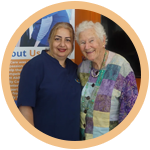
Independent Ability Care is exceptional in their services. Having experienced a poor understanding and service from my previous provider, I can confidently say that Independent Ability Care is a company that truly cares.
Why Choose Us?
Our values are at the centre of everything we do
for our participants, their families and the community.

Clear Communication
We as NDIS service providers value the importance of a clear and open communication with our participant, their family & our staff within the wider community. We hear you.
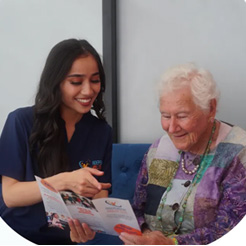
Person-Centered Care
Our dedicated and passionate NDIS service providers and staff have one common goal when working with you: To provide you the dedicated care you deserve in a respectful and empowering manner at all times.

Dedication
Our devoted and passionate NDIS registered providers of IAC have one common goal: To provide you with the dedicated care you deserve in a respectful and empowering manner at all times.
Frequently Asked Questions
Do you offer services in languages other than English?
Yes we do! We speak English, Dari, Persian and Hindi.
How does your pricing work, and does it align with the NDIS Price Guide?
We need to understand what care you need and your goals before recommending our services. Once we have a complete understanding, we ensure that the recommended services are affordable within your NDIS plan budget and the NDIS price guide; that there are no hidden costs.
How are your staff trained, and can I choose who works with me?
We ensure that our staff have the qualifications for the job and they receive regular trainings so as to ensure continuous improvement of our services. As long as the support coordinator possess the right qualifications to provide you the care you need (depending on the service required), we are happy for you to make the choice.
Our Support Workers qualifications include:
- Certificate III in Individual Support (Disability, Aged Care, or Community)
- Certificate IV in Disability
- Certificate III or IV in Community Services
- Certificate IV in Mental Health (where relevant)
- First Aid & CPR certification
- NDIS Worker Orientation Module (mandatory for all workers)
- Manual Handling and Medication Assistance training
- Positive Behaviour Support (PBS) training (where required)
- Infection Control training
What is your process for feedback, complaints, and continuous improvement?
We continually review the feedback and complains that we get so that we can improve the services we provide. If there is a complaint, we will keep you informed throughout the complaints process and inform you of the outcome and the reason behind it. If you’d like to submit a feedback or complaint, submit this form and select “feedback”.
What is considered a physical disability?
A physical disability is any condition that affects movement, mobility or the ability to perform daily tasks. This may be due to muscle weakness, reduced coordination, joint issues, neurological conditions, pain, fatigue or injury.
Examples include cerebral palsy, stroke, spinal cord injury, muscular dystrophy, multiple sclerosis, limb differences, chronic pain conditions, degenerative disorders and acquired injuries.
Does a physical disability automatically qualify someone for the NDIS?
Not always. The NDIS looks at functional impact, not just diagnosis. To be eligible, your disability must be:
- Likely to be permanent
- Significantly impacting day-to-day activities
- Supported by evidence from health professionals
Many physical disabilities meet these criteria, but evidence is essential.
What evidence do I need to apply for the NDIS?
You’ll need documents that clearly describe how your disability affects daily living, such as:
- GP or specialist reports
- Physiotherapy or occupational therapy assessments
- Functional capacity assessments
- Hospital discharge summaries (if relevant)
The NDIS wants to understand what you can do, what you struggle with and what support you need.
How does the NDIS support people with physical disabilities?
The NDIS can fund supports that help with safety, mobility, independence and daily living. This may include:
- Personal care
- Community access
- Supported transport
- Help with routines and household tasks
- STA/respite
- Physiotherapy and occupational therapy
- Nursing care for complex needs
- Equipment such as wheelchairs and hoists
- Home modifications
Your supports depend on your individual goals and functional needs.
Will the NDIS fund equipment like wheelchairs, hoists or mobility aids?
Yes. This usually falls under Assistive Technology or Capital Supports. A therapist (usually an OT or physio) will assess your needs and provide clinical justification to support the request.
Can the NDIS fund home modifications for physical disabilities?
Yes, if the modifications improve safety, reduce risk or support independence. Examples include ramps, rails, bathroom changes or door widening. Minor modifications are often approved more quickly, while major changes require detailed assessments.
What supports are commonly funded for people with physical disabilities?
Participants often receive:
- Personal care
- Community participation
- Therapy services
- Specialised disability accommodation (if required)
- Nursing supports
- STA/respite
- Equipment and technology
- Skill-building supports
Funding levels vary depending on individual needs.
How does the NDIS decide what is “reasonable and necessary”?
The NDIS considers whether the support:
- Directly relates to your disability
- Helps you achieve your goals
- Improves safety, independence or participation
- Is backed by evidence
- Is value for money
Can I choose my support workers?
Yes. You have full choice and control.
Many participants prefer workers who understand their culture, language or communication style, especially in Melbourne’s diverse communities. Providers should always respect your preferences.
How important is continuity of care for physical disabilities?
Very important. Consistent workers:
- Learn your routines
- Reduce risk during transfers and mobility support
- Improve communication and comfort
- Build trust over time
Continuity is especially important for complex care, morning routines and equipment use.
Ready to discover the secret to stress-free NDIS support?
Get Started – Book a Callback!
We understand every participant has different communication needs. If you prefer email or another contact method, simply let us know in the comments and our team will follow your preference.
Other Services

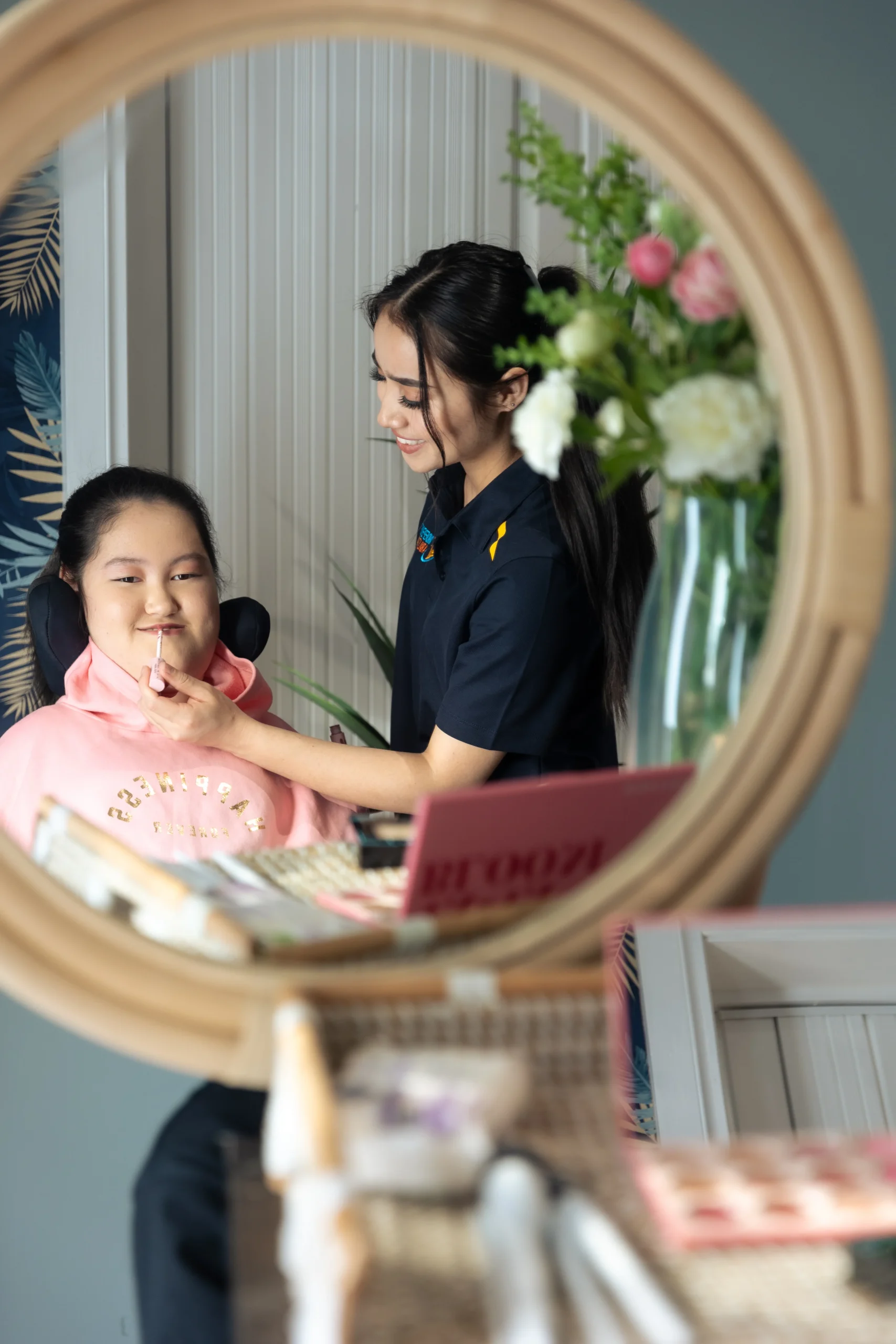

NDIS Support for Intellectual Disabilities
Develop core life skills to easily achieve your goals.



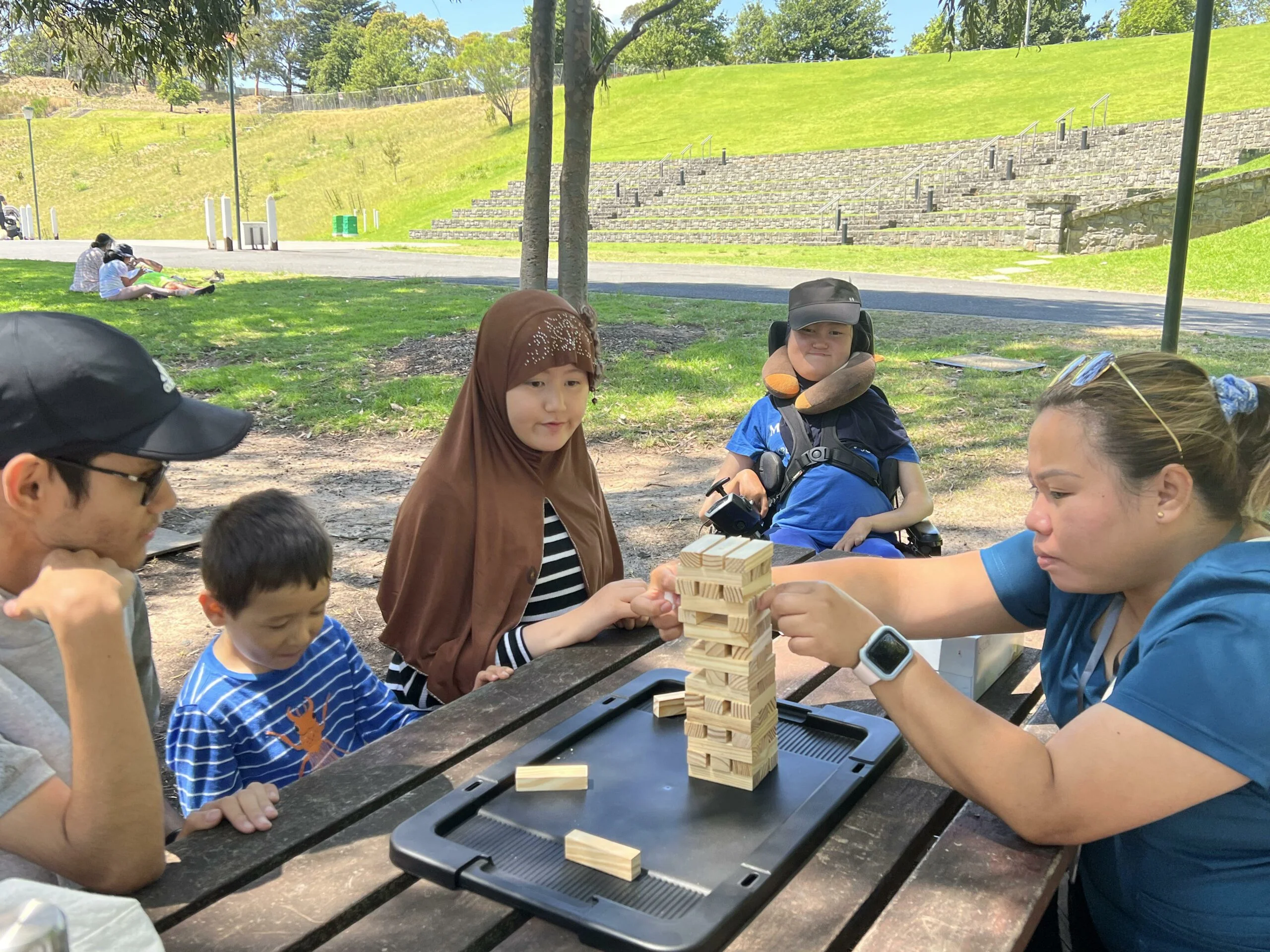
NDIS Social and Community Participation
Choose the activity you want to be involved in and we'll make it happen.

NDIS Specialist Support Coordination
Connect with the community and maximise your NDIS plan.
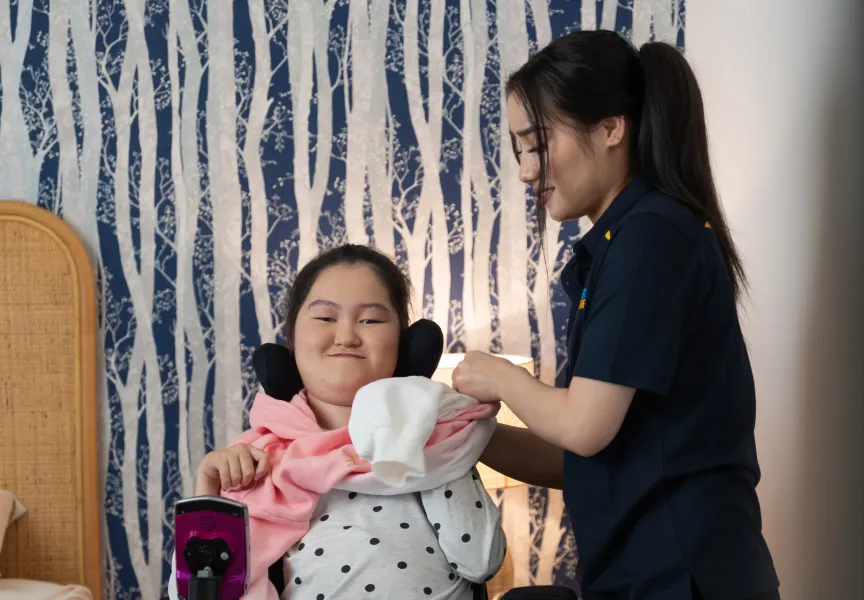
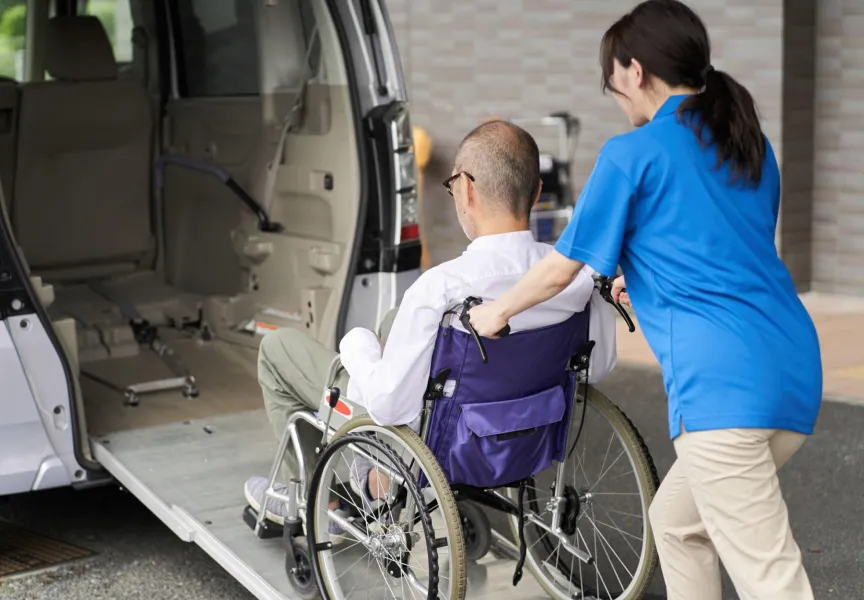
NDIS Transport Providers
Learn how to access your community and pursue greater opportunities.

NDIS Home Maintenance
Offering the best home maintenance and cleaning service in Melbourne.

